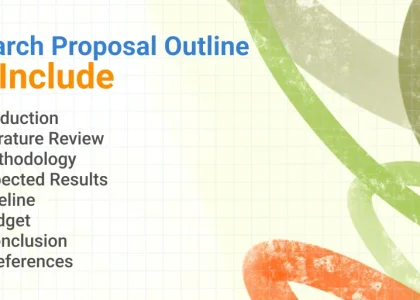Writing a dissertation proposal is a crucial step in your academic journey. It sets the foundation for your research and determines the direction of your study. However, many students make common mistakes that can lead to unnecessary revisions or even proposal rejection. Here are some of the most common mistakes to avoid when drafting your dissertation proposal.
1. Choosing an Overly Broad or Vague Topic
A dissertation proposal should have a clear and focused research topic. Selecting a broad or ambiguous topic can make it difficult to define your research scope and objectives. Ensure your topic is specific, researchable, and relevant to your field of study.
2. Lack of a Clear Research Question
Your research question should guide your entire study. A poorly defined or overly complex research question can make your dissertation unfocused. Make sure your research question is precise, feasible, and contributes to existing knowledge.
3. Insufficient Literature Review
A weak literature review fails to provide proper context for your research. Your proposal should include a thorough review of existing studies, highlighting gaps in research and demonstrating how your study will address them.
4. Poorly Defined Research Objectives
Your research objectives should be clear, concise, and achievable. Avoid vague or unrealistic goals that make it difficult to measure your progress. Clearly define what you aim to accomplish through your study.
5. Inadequate Research Methodology
Your proposal should outline a well-thought-out research methodology, including data collection and analysis methods. Failure to justify your chosen methodology can raise concerns about the validity of your research.
6. Ignoring Ethical Considerations
Ethical approval is crucial in academic research. Failing to address ethical considerations, such as informed consent and data privacy, can lead to rejection or delays in your research process.
7. Poor Proposal Structure and Organization
A well-organized proposal enhances readability and comprehension. Ensure your proposal includes key sections like an introduction, literature review, methodology, research questions, and references. Avoid a disorganized flow of ideas.
8. Weak Justification of Research Significance
Your proposal should explain why your research is important and how it contributes to your field. A weak justification can make your study appear insignificant or redundant.
9. Inconsistent or Incorrect Referencing
Academic writing requires proper citation and referencing. Inconsistent or incorrect use of citation styles (APA, MLA, Harvard, etc.) can result in plagiarism issues and weaken the credibility of your proposal.
10. Procrastination and Last-Minute Writing
Rushing through your dissertation proposal increases the likelihood of errors and weak arguments. Start early, plan your writing process, and allocate sufficient time for revisions and feedback.
Final Thoughts
Avoiding these common mistakes will improve the quality of your dissertation proposal and increase your chances of approval. Take your time to refine your research topic, structure your proposal properly, and seek feedback from advisors or peers. With careful planning and attention to detail, you can craft a strong and compelling dissertation proposal. Good luck!






